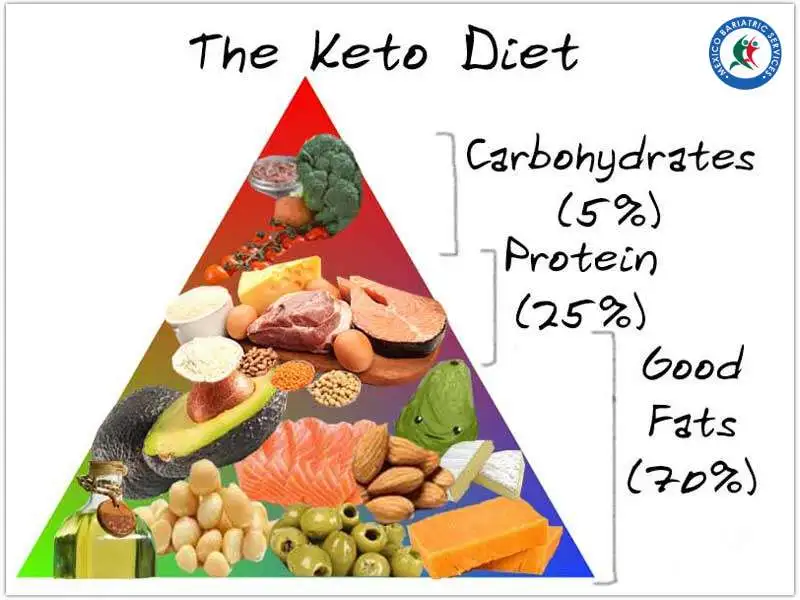Why Ketogenic Diet Is Not the Best Idea After Bariatric Surgery
Medically Reviewed by Katelyn J. Mock, US-Registered Dietician (R.D.)
The ketosis diet has been around for a long time, and it has most recently gained popularity again for a few reasons. Following a surgical weight loss procedure, be it gastric sleeve or gastric bypass, there are some diet guidelines that one needs to follow.
People, however, tend to form their own diet plans over time according to their tastes, preferences, and needs. While following the ketogenic diet after bariatric surgery, you do lose weight, and there are a few reasons for that.
Positive Impact of Ketogenic Diet Post Bariatric Surgery
- Loss of Water Weight – Carbohydrates hold a lot of water, as well as good complex carbohydrates. So, when one cuts those out, one does lose some adipose tissue, but mainly, a person loses a lot of water weight So, for the first 2-3 weeks… most of it is water weight. It is not adipose or fat tissue that one loses.
So, it’s one of those things we can’t really get excited about because it’s not the good and healthy weight loss that you want.
- Weight Loss due to cutting out sugar and other carbs- The other issue is when you cut out all the complex carbohydrates as well as the simple carbohydrates, so the crispy crunchy carbs, the candies, the chocolates, the sweets, the desserts, the soda… you do lose weight because you are not eating as many calories typically.
It is sort of empty carbohydrates and empty calories that don’t really fill you up or provide a lot of nutrition, and when people replace those with more fats and proteins, those tend to keep you feeling full a little bit longer than the empty calories.

Negative Impact of Ketogenic Diet After Weight Loss Surgery
Fad diets are just that… fads. Don’t get tricked into going on something short-term to see a quick spike in weight loss which is mostly fluid changes and loss of muscle. There are a lot of more negative side effects of the ketosis diet.
- Nutrition deficiency is a big one
- Constipation
- Loss of mass
- Lesser cardiac muscle
- Keto flu
If a person has kidney disease or underlying kidney disease, it is especially dangerous.[1]Ko, Gang Jee, et al. “Dietary Protein Intake and Chronic Kidney Disease.” Current opinion in clinical nutrition and metabolic care 1 (2017): 77–85. PMC. Web. 1 Aug. 2018.
View in Article
There is a kind of keto flu that happens. So, a part of that is the brain fog that happens. That is because carbohydrates are the only fuel in the body that the brain can run off of.
So, when one cuts all the carbs out, the brain is not able to function as much. To combat this situation, one needs to increase their fiber intake, and several methods like ketogenic amino acid leucine and exogenous ketones can reduce the effect of the keto-flu. [2]Harvey, Cliff J. d C., Grant M. Schofield, and Micalla Williden. “The Use of Nutritional Supplements to Induce Ketosis and Reduce Symptoms Associated with Keto-Induction: A Narrative Review.” Ed. David Meyre. PeerJ6 (2018): e4488. PMC. Web. 1 Aug. 2018.
View in Article
Part of the ketosis diet is that it perpetuates a constant yo-yo dieting effect. So, even if you are doing this after surgery as a way to get through a weight loss plateau, you’re not getting to the core of the problem. It is not going to jumpstart your weight loss again.
All you are doing is either lowering your metabolism or losing that good muscle mass and then eventually replacing it with adipose tissue. So, it sort of goes on this constant.
- That is why for behavior modification, lifestyle changes are so important. They’re not as exciting. They’re not as sexy. They’re not as fast.
- They’re slow and small changes and habits that happen to really make long-term success possible. So, I really encourage you to go back to those lifestyle changes.
Keto and Weight Loss – Things to Remember Post Weight Loss Surgery
- When in doubt, try adding more non-starchy veggies and changing the workout regimen to keep your body on its toes.
- Be very careful with the ketogenic diet after bariatric surgery. Though it’s a popular diet at the moment, it’s rough on the kidneys when done for any length of time.
- This diet can be dangerous. Your body breaks down muscle to fuel your brain when you are in ketosis, and those extra amino acids put added pressure on your kidneys.
References
- Ko, Gang Jee, et al. “Dietary Protein Intake and Chronic Kidney Disease.” Current opinion in clinical nutrition and metabolic care 1 (2017): 77–85. PMC. Web. 1 Aug. 2018.
- Harvey, Cliff J. d C., Grant M. Schofield, and Micalla Williden. “The Use of Nutritional Supplements to Induce Ketosis and Reduce Symptoms Associated with Keto-Induction: A Narrative Review.” Ed. David Meyre. PeerJ6 (2018): e4488. PMC. Web. 1 Aug. 2018.

